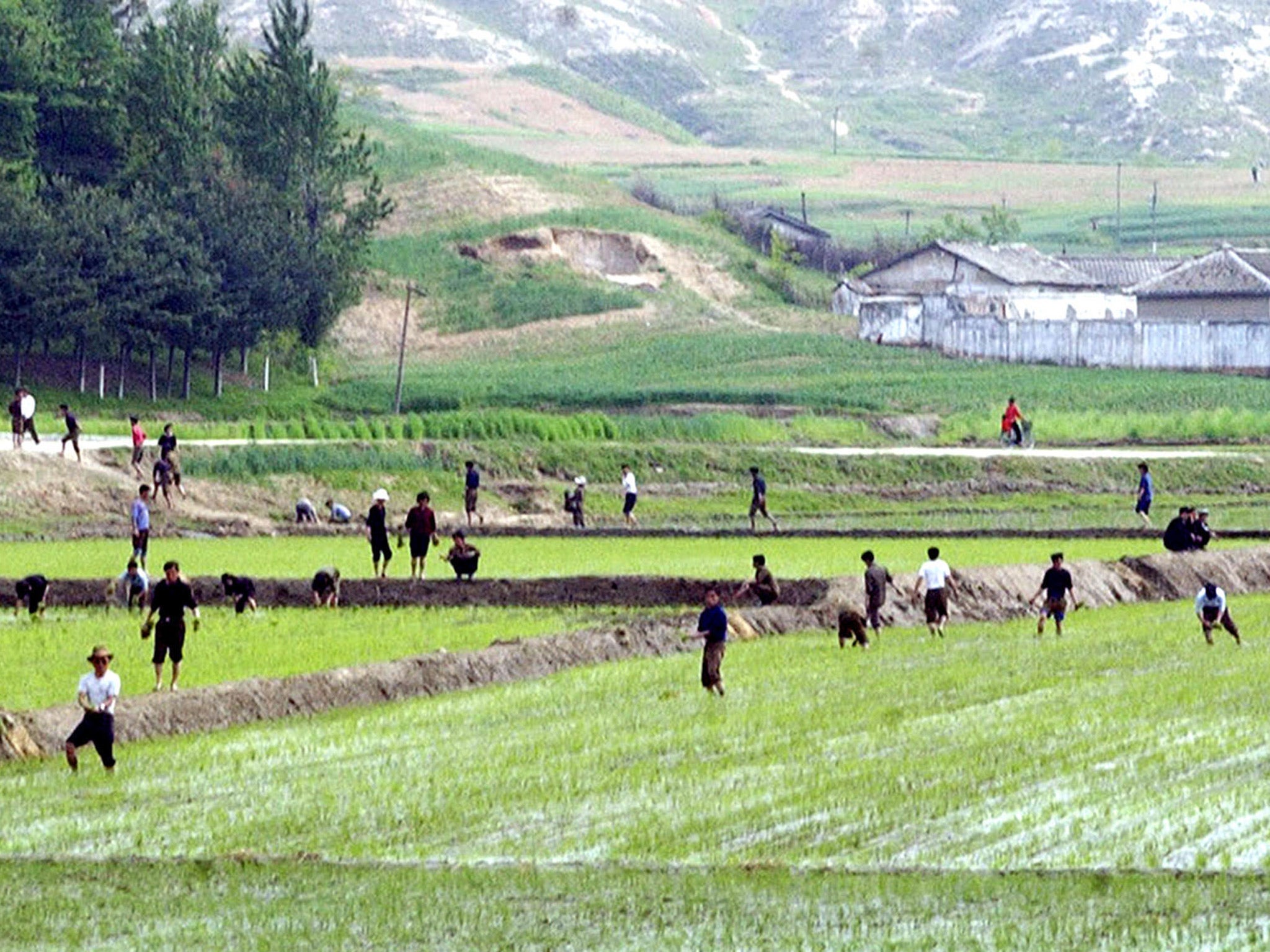North Korea's reservists 'called back to help with spring harvest'

Your support helps us to tell the story
From reproductive rights to climate change to Big Tech, The Independent is on the ground when the story is developing. Whether it's investigating the financials of Elon Musk's pro-Trump PAC or producing our latest documentary, 'The A Word', which shines a light on the American women fighting for reproductive rights, we know how important it is to parse out the facts from the messaging.
At such a critical moment in US history, we need reporters on the ground. Your donation allows us to keep sending journalists to speak to both sides of the story.
The Independent is trusted by Americans across the entire political spectrum. And unlike many other quality news outlets, we choose not to lock Americans out of our reporting and analysis with paywalls. We believe quality journalism should be available to everyone, paid for by those who can afford it.
Your support makes all the difference.The warning, announced on North Korean state television, is the latest salvo in weeks of sustained bellicosity that have raised the threat of conflict to its highest level in years. But on the ground the grave words were largely ignored – foreign businesses and schools were operating normally and consulates gave no indication they were taking the threat seriously.
“We are concerned about [North Korean] attempts to raise the level of tension in the region,” said the British embassy in Seoul. “But our advice to British nationals remains the same – there is no immediate risk to foreign nationals in the Republic of Korea.”
The US Embassy said its staff were coming to work as normal.
Earlier, the South Korean Unification Minister, Ryoo Kihl-jae, said the “door for dialogue is still open” to Pyongyang, after the UN Secretary-General, Ban Ki Moon, said he was still “deeply concerned” that the unusually high tensions could trigger an “uncontrollable situation”.
This week comes one sure sign that life on in the North is returning to normal after weeks of military drills: nationwide manure production. Millions of North Koreans have swopped guns for shovels and returned to collective farms to make fertiliser. Sources in South Korea say a quarter of the North’s population – up to seven million people – have been ordered to prepare for spring crops, an annual ritual that is critically important for the impoverished, aid-dependent nation.
“Until last month there were worker and peasant Red Guards and other reserves on the streets, all in uniform with their backpacks and guns, but now there are only workers with shovels and hoes, mobilised to produce manure for farms,” said the well-respected Dailynk.com news website, which relies on information from a network of reporters inside the North.
The stand-down suggests full-scale conflict is increasingly unlikely, though the North could still fire a missile or test another nuclear weapon. Today, Japan deployed Patriot missiles in the centre of Tokyo, the world’s most populated metropolis, as a precautionary measure. The defences will be used to shoot down any incoming North Korean missile.
South Korea’s military says any show of strength is likely to happen in the next week, possibly ahead of a visit to Seoul by the US Secretary of State, John Kerry, on Friday. The Nato leader Anders Fogh Rasmussen also said that he would visit Seoul on Friday, although he stressed the visit was pre-planned. A series of demonstrations in the North is due to start next Monday to mark the birth of the state’s founder Kim Il-sung, grandfather of current leader Kim Jong-un.
Defectors say they doubt the combat ability of North Korean soldiers. “It’s impossible for them to fight because they don’t have enough food and their health is poor,” said Choe Song Min, who spent 20 years in the North’s army before defecting to the south in 2011.
Join our commenting forum
Join thought-provoking conversations, follow other Independent readers and see their replies
Comments